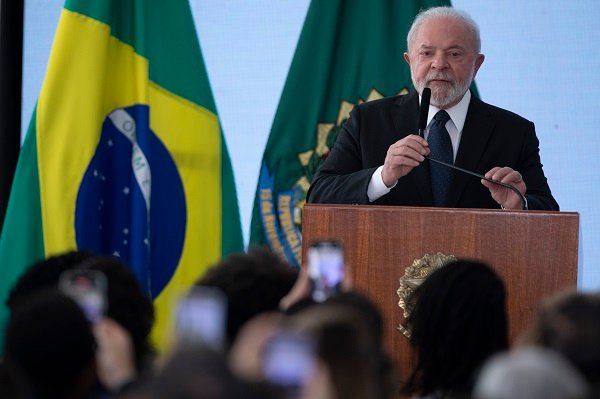On the eve of the municipal elections, President Luiz Inácio Lula da Silva made a speech on national radio and TV on Sunday (28) to highlight the achievements of a year and a half of government. He took the opportunity to make a comparison with the previous administration that had left Brazil “in ruins”. The PT member also emphasized that he had blocked an attempted coup on January 8, 2023, and that democracy had won. In the end, the facts mentioned ended up revealing a series of challenges ahead and a government concern to deal with them amid this year’s election.
This Content Is Only For Subscribers
To unlock this content, subscribe to INTERLIRA Reports.
Fiscal Responsibility
Lula once again defended fiscal responsibility, at a time when there are concerns among economic agents about the fulfillment of fiscal targets and the credibility of the framework approved by Congress. In recent weeks, statements by the president about difficulties in cutting government spending have caused uncertainty in the market and a rise in the dollar against the real.
Early Campaign
The PSDB announced on Monday (29) that it will take legal action against the speech made by President Lula (PT) on Sunday (28). According to the PSDB party, there was improper use of radio and television since the head of the Executive Branch allegedly adopted an electoral discourse.
Historical Adversaries
The municipal election is not mentioned at any point, but, in the PSDB’s view, promoting its mandate would be enough to leverage allies. Historical adversaries of the PT, the PSDB have been part of the opposition to the federal government since the beginning of Lula’s third term.
This is not the first time that the PSDB has taken legal action against the Planalto Palace. In May of this year, the president’s speech on Labor Day resulted in another lawsuit, this time for personal promotion.
Municipal Elections
Pre-candidates for mayor who are competing for the support of President Luiz Inácio Lula da Silva and former President Jair Bolsonaro have suffered from internal disputes within the same political field and, in some cases, even within the same party. Internal disagreements have already led to situations such as successive changes of pre-candidates, disputes over electoral funds, and politicians supporting names that are running against their party, in addition to causing the president and former president to withdraw from pre-campaign events.
Fragmentation in São Paulo
In São Paulo, there is a wing of PT councilmen who are supporting Mayor Ricardo Nunes (MDB), when the party’s name is Guilherme Boulos (PSOL). Meanwhile, the PSB, led by Vice President Geraldo Alckmin, has Tabata Amaral as a pre-candidate and is a direct competitor to Boulos, a name supported by Lula. The PSOL politician will have a vice-mayor from the PT, former mayor Marta Suplicy.
The opposition is also in a complicated scenario. Ricardo Nunes has the support of the PL, but Pablo Marçal (PRTB), who has already been received by Bolsonaro, has attracted a portion of the city’s right-wing and has even negotiated with União Brasil. Added to this is the fact that not all of São Paulo’s Bolsonaro supporters will be involved in the mayor’s reelection bid.
Other Capitals
In other capitals, the scenario of division is similar. In Rio, Mayor Eduardo Paes (PSD) is expected to have the support of the PT, but a wing of the party is moving to support Tarcísio Motta (PSOL). The assessment is that most of the parties in Rio will informally support the PSOL’s candidacy.
Also in Rio, Alexandre Ramagem (PL), former head of the Brazilian Intelligence Agency (Abin), shares the right-wing spectrum with other candidates, such as Marcelo Queiroz (PP) and Rodrigo Amorim (União Brasil).
Analysis:
President Lula’s speech emphasizing the achievements of his government and comparing it with the previous administration, could have significant implications for Brazil’s governability and political stability. By emphasizing the defense of democracy and the alleged prevention of a coup, Lula seeks to reinforce confidence in democratic institutions and in the government’s ability to maintain order. However, these statements could also be interpreted as an attempt to mobilize voters and consolidate support.
In addition, the political fragmentation observed in São Paulo and other capitals, with candidates running within the same political field and even within the same party, demonstrates the complexity of the current electoral scenario. This fragmentation can weaken strategic alliances and hinder the implementation of public policies. Internal disputes between pre-candidates, as well as the lack of consensus on support, can result in an unstable political environment, making it difficult to coordinate and execute initiatives at the municipal and state levels. Governance is directly impacted by this fragmentation, as coalition building and legislative support become more challenging.




